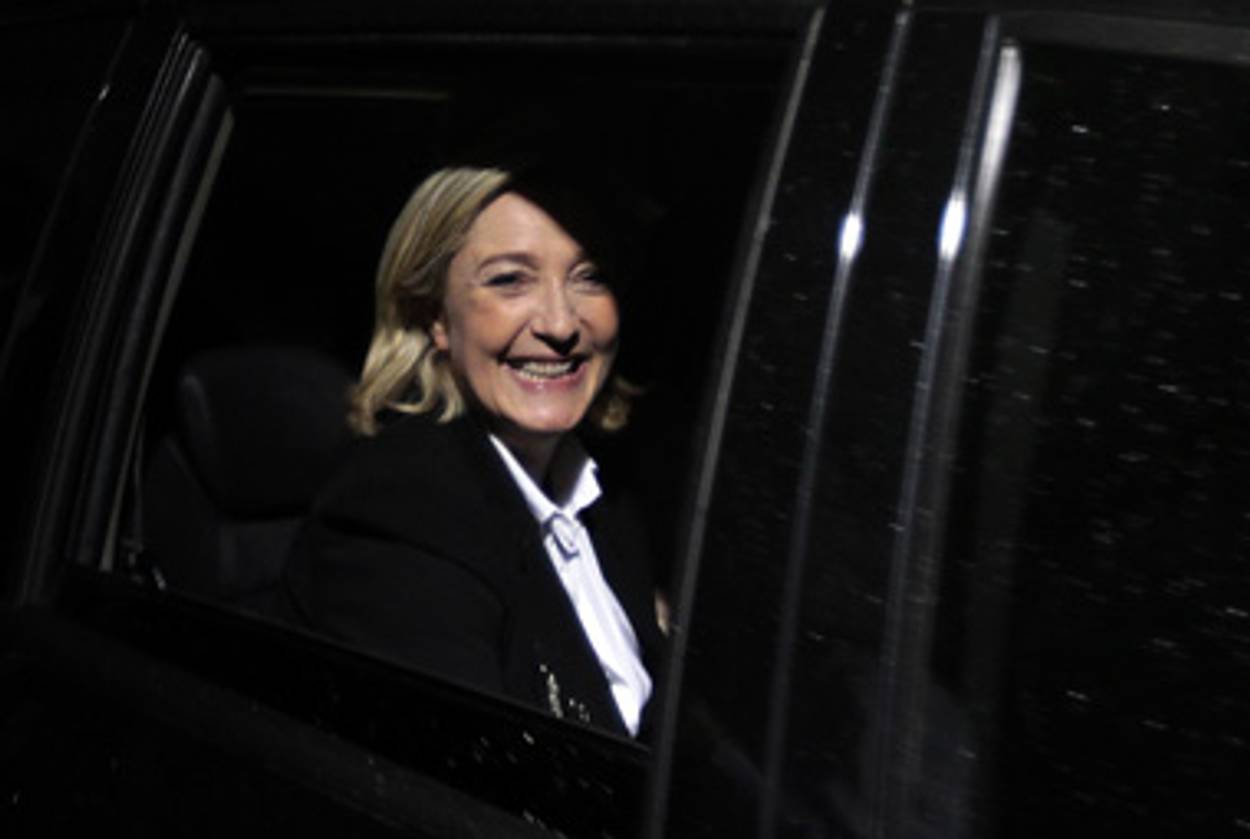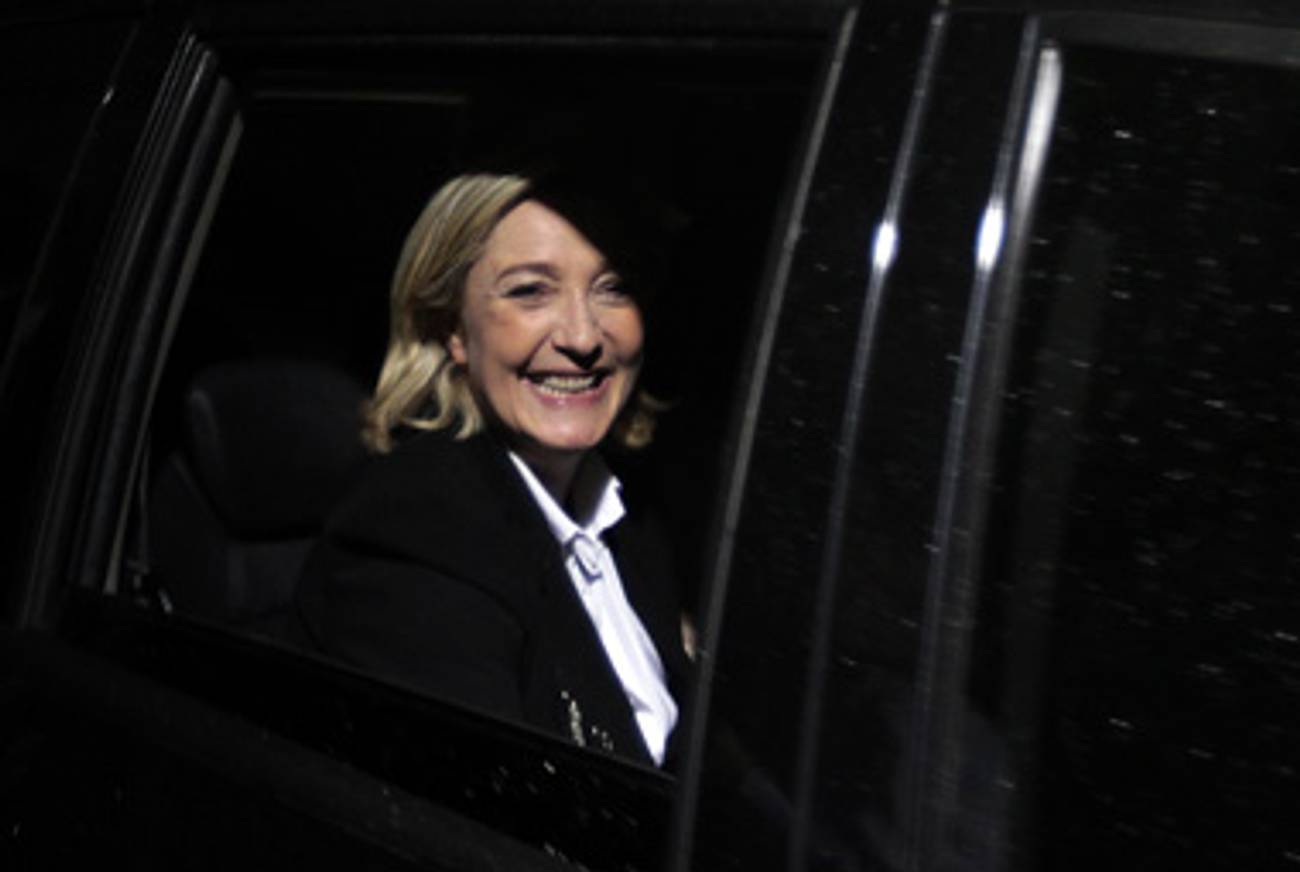The Future of the European Far Right
Adar Primor, of ‘Haaretz,’ explains why Le Pen et al are not to be trusted




The far-right Marine Le Pen placed a strong third to Socialist François Hollande and center-right President Nicolas Sarkozy earlier this week in the first round of France’s presidential elections, while at the same time getting the highest percentage ever for her Front National—a party with undeniable anti-Semitic pedigree, notably from her own father.
Adar Primor, Haaretz’ foreign editor for nearly two decades, is an extremely shrewd observer of European politics from an Israeli and Jewish perspective. He has been especially perceptive and important on the tacit alliance between some far-right European leaders and some of Israel’s own right-wing politicians, who find common ground in anti-Islam sentiments. We spoke today. (Interview has been lightly edited for clarity.)
What’s your reaction to the results?
There’s a mix of surprise and shock. I’m not surprised by the outcome, but quite surprised that it seems so many Jews voted for her—not surprised, but rather, disappointed, because it seems many people are just blinded by the fact that her main issue is the fight against immigrants, meaning Muslim immigrants, and many Jews are voting according to the belief that the enemy of my enemy is my friend.
For me, it’s disappointing, because I think you shouldn’t forget the other part of her belief, and the background she’s coming from. We know who the people she’s running with are. The same people who supported her father support her.
You don’t buy the separation between father and daughter quite so much?
I interviewed her more than once, and I asked her very specifically the question about when her father condemned Jacques Chirac’s historic declaration in 1995 in which he took responsibility for the sins and crimes of the Vichy regime. Her father condemned it very strongly and even considered it treason. I asked, What about you? You keep saying your father is your father and you are yourself—what about that? She not only didn’t want to condemn crimes of the Vichy regime, but she was really angry to be asked about that, and she said very specifically that she will not say anything bad against her country, her motherland. It’s not the kind of extreme right politicians who really changed. What is happening is more tactics than change of ideology. For that reason, I think that voting for her is a terrible mistake.
Now French-Israelis and French Jews (the former of whom reportedly voted overwhelmingly for Sarkozy), will vote for Sarkozy or Hollande for the presidency. Sarkozy has been a supporter of Israel and even has Jewish blood, but to win he will need to take some of Le Pen’s votes, and to do that he may need to move further to his right. Does that concern you?
I think up to a certain point. Today he made a declaration that one should understand the voters and the protest that is behind their vote, but there will be no deal with the National Front, no deal according to which any National Front politician could be a minister in a Sarkozy government. I think both candidates are trying to get close to the voters, especially those who feel out of society. But this would be up to a certain point. I don’t believe any of those two politicians will cross a certain line.
The Hard Right Is Leading Europe Into Darker Times [Haaretz]
What Le Pen’s Success Means for Europe’s Far-Right [Haaretz]
Related: The Unholy Alliance Between Israel’s Right and Europe’s Anti-Semites [Haaretz]
Send the Marine [Tablet Magazine]
Earlier: In France, Sarko Second, Le Pen Strong Third
Is Marine a Different Animal?
Marc Tracy is a staff writer at The New Republic, and was previously a staff writer at Tablet. He tweets @marcatracy.